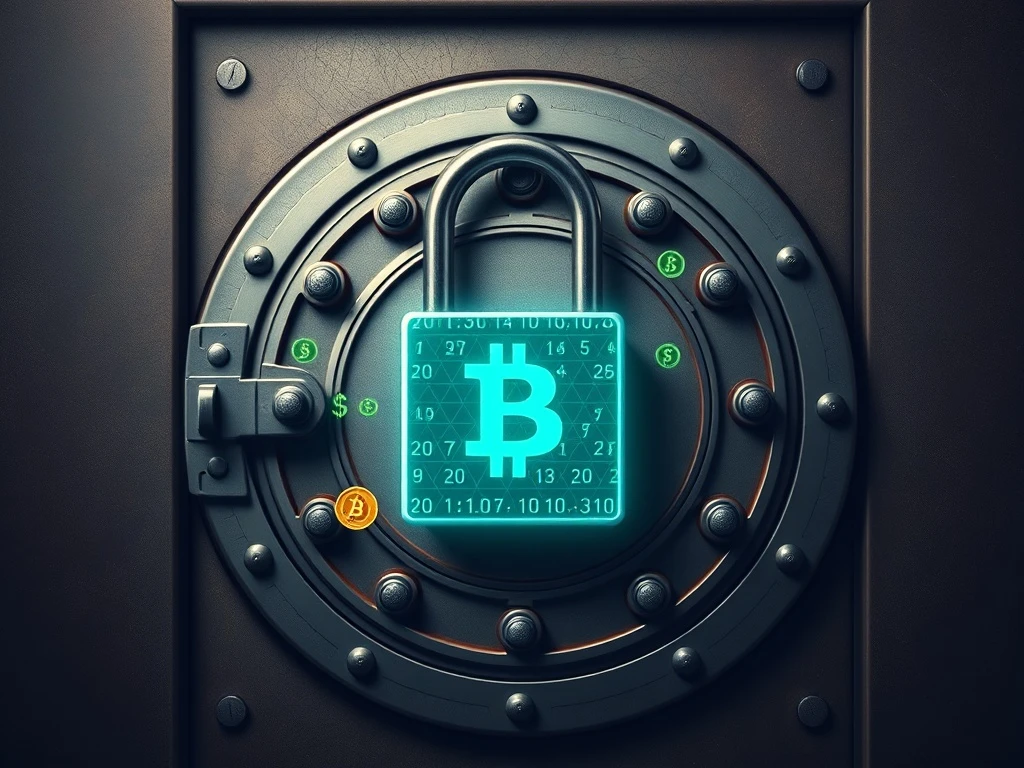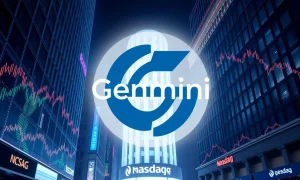For entrepreneurs and business leaders navigating the digital asset landscape, the specter of crypto debanking remains a significant challenge. Despite recent shifts in political rhetoric towards a more crypto-friendly environment, many firms still report difficulties accessing essential banking services. This ongoing issue, often labeled ‘Operation Chokepoint 2.0,’ highlights a persistent struggle for legitimacy and integration within traditional finance. Understanding these dynamics is crucial for any business operating in or alongside the cryptocurrency sector.
The Unyielding Grip of Crypto Debanking
Many in the crypto industry believed the era of widespread account closures was over. Indeed, President Donald Trump’s pro-crypto stance and campaign rhetoric suggested a friendlier future for digital assets. However, recent reports paint a different picture. The practice of crypto debanking continues, causing significant disruption for companies.
For instance, Andreessen Horowitz partner Alex Rampell recently warned about ‘Operation Chokepoint 3.0.’ He highlighted how major banks are increasing fees for fintech and crypto apps. These fees impact access to account data and fund transfers to platforms like Coinbase and Robinhood. This move effectively squeezes smaller players and innovation.
Echoing these concerns, Alex Konanykhin, CEO of Unicoin, shared his firm’s direct experience. He stated that U.S. banks are still closing accounts for crypto firms. This happens often without clear explanations, despite growing political pressure to halt the practice. “We know about it first-hand, as Unicoin and its subsidiaries have been de-banked, without explanations, by several banks,” Konanykhin explained.
Unicoin, a publicly reporting corporation with six years of audited financials and over 4,000 shareholders, faced these challenges. Konanykhin listed five major banks that severed ties with Unicoin or its subsidiaries over the past years:
- Citibank
- Chase
- Wells Fargo
- City National Bank of Florida
- TD Bank
StockPil, the original news source, reached out to these banks for comment. However, no responses were received by the time of publication. This lack of transparency further complicates matters for affected businesses. The consistent denial of services suggests a broader, coordinated effort rather than isolated incidents.
 Operation Chokepoint 3.0 by Alex Rampell: Source: a16z
Operation Chokepoint 3.0 by Alex Rampell: Source: a16z
A Nationwide ‘Operation Chokepoint’ Continues
Konanykhin’s experience underscores a larger trend. Unicoin was debanked by four banks in this year alone. This pattern strongly suggests that crypto debanking is indeed a “large-scale nationwide operation.” This systemic issue creates highly disruptive and damaging conditions for crypto companies across the United States. Furthermore, it deprives them of access to basic financial services. Consequently, this suppresses the American crypto industry’s growth and innovation potential.
The impact extends beyond individual companies. It affects the entire ecosystem. Without reliable banking, crypto firms struggle with payroll, vendor payments, and client transactions. This directly hinders their ability to scale and compete globally. Many fear that the U.S. is falling behind other nations that offer more welcoming regulatory environments for digital assets. Therefore, a clear and consistent policy is urgently needed.
Political Will Versus Regulatory Inertia on Crypto Debanking
Amid these challenges, political leaders are taking notice. Bloomberg recently reported that President Trump plans to sign an executive order. This order would direct federal bank regulators to identify and penalize financial institutions engaged in debanking. Reportedly, the order will mandate regulators to review complaint data. Additionally, banks overseen by the Small Business Administration must work to reinstate clients unlawfully denied services.
Konanykhin expressed optimism regarding this potential executive order. “The President knows the pain of de-banking first-hand and seems determined to stop this form of economic warfare against American businesses,” he noted. He believes that ending crypto debanking could significantly boost the U.S. crypto industry. This could help reclaim global leadership in the digital asset space. “Ending the War on Crypto will boost the American crypto industry. It may become as impactful internationally as Hollywood is in entertainment or Silicon Valley in IT,” he added.
However, the path to reform is complex. Elizabeth Blickley, a partner at Fox Rothschild’s Tax Controversy & Litigation Practice, cautions that meaningful change hinges on the final wording of new regulations and laws. While Trump has directed agencies to review crypto integration, the specifics matter immensely. For instance, the recently signed Genius Act gives the Federal Reserve’s Stablecoin Certification Review Committee 180 days to design a regulatory framework. This timeframe suggests that immediate, sweeping changes are unlikely.
The Nuances of Regulatory Reform and Future Outlook
Blickley also warned about the legislative process itself. Most bills in Congress never make it out of committee. Furthermore, any eventual legislation will likely face litigation from both sides of the regulatory debate. “A regulation may facially comply with the President’s request or a law passed, yet have little application or disproportionate impacts based solely on word-choice,” she explained. This highlights the critical importance of precise language in legal texts. Ambiguous wording can lead to unintended consequences or loopholes.
For the time being, banks are likely to maintain their risk-averse stance toward crypto. This will continue until new rules clearly reduce perceived risks. “It’s all about making risk-averse entities and people feel like crypto is less of a risk,” Blickley concluded. Therefore, the onus is on policymakers to create clear, comprehensive frameworks. These frameworks must balance innovation with consumer protection and financial stability. Only then can the ongoing issue of crypto debanking truly begin to recede.
The future of the American crypto industry largely depends on these regulatory developments. A clear, supportive framework could unlock significant economic potential. Conversely, continued ambiguity and restrictive policies will only stifle growth. Businesses must remain vigilant and adapt to this evolving landscape, advocating for policies that foster fair access to financial services.
Frequently Asked Questions (FAQs)
What is ‘crypto debanking’?
Crypto debanking refers to the practice where traditional banks close accounts or deny services to cryptocurrency businesses. This often happens without clear explanation, citing vague ‘risk’ concerns.
What is ‘Operation Chokepoint 2.0’ and ‘3.0’?
‘Operation Chokepoint 2.0’ is a term used by the crypto industry to describe a perceived coordinated effort by regulators and banks to suppress digital asset firms by denying them banking services. ‘3.0’ suggests a new phase, potentially involving increased fees or indirect restrictions on fintech and crypto apps.
Why are banks engaging in crypto debanking?
Banks often cite anti-money laundering (AML) and know-your-customer (KYC) compliance risks, along with regulatory uncertainty surrounding cryptocurrencies. They view crypto firms as high-risk entities due to the perceived anonymity and volatility of digital assets.
How does crypto debanking impact the cryptocurrency industry?
It severely limits crypto firms’ ability to conduct basic financial operations, such as payroll, vendor payments, and client transactions. This stifles innovation, hinders growth, and pushes some businesses offshore, potentially undermining the U.S. position in the global crypto economy.
What steps are being taken to address crypto debanking?
Political figures, including President Donald Trump, have indicated intentions to curb debanking through executive orders directing federal regulators to review and penalize unfair practices. Additionally, legislative efforts like the Genius Act aim to create clearer regulatory frameworks for digital assets, which could reduce banks’ perceived risks.
Will political intervention immediately end crypto debanking?
While political pressure is increasing, experts suggest that meaningful change will depend on the precise wording and implementation of new regulations and laws. Banks are likely to remain risk-averse until clear, comprehensive frameworks are established that significantly reduce their perceived exposure to risks associated with crypto assets.
























